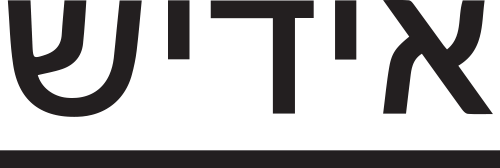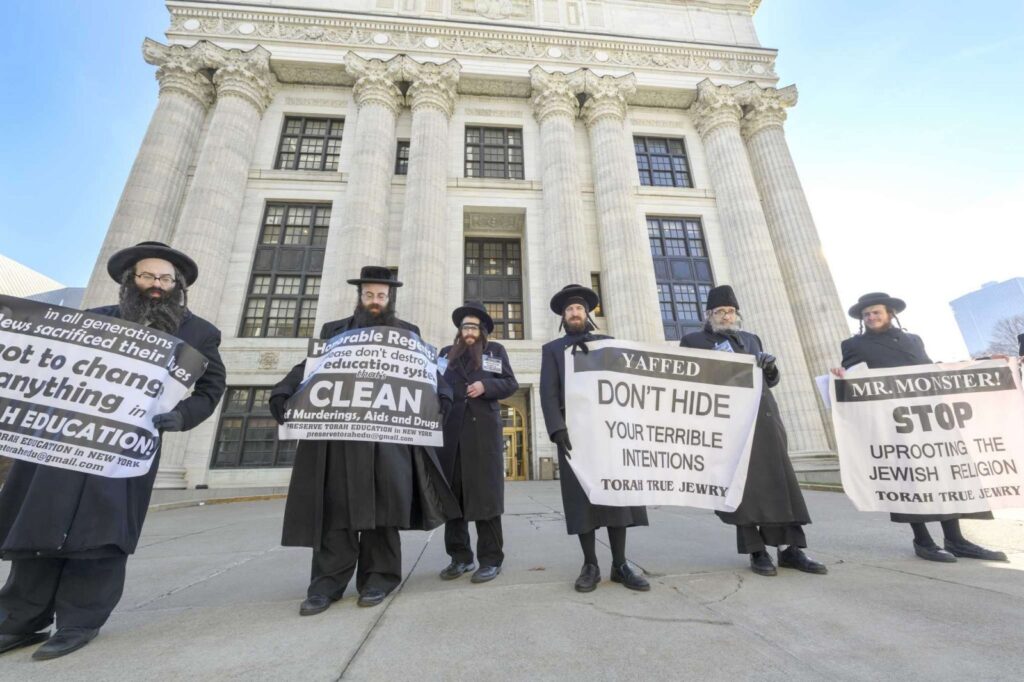Recent events over the last few months have rekindled interest in the controversy over secular education and yeshivas. To anyone coming across the story for the first time, the prerequisites for understanding the issue may seem a daunting task. Even for those familiar with the broad outlines of the debate, certain details about the law and conditions in these yeshivas remain mystifying.
What is a Haredi Yeshiva?
A yeshiva is a religious Jewish private school, and Haredi yeshivas are a subset of this group. Many are Hasidic, but quite a few are “Yeshivish” or Litvak (“Litvish”).
Unlike public schools and Modern Orthodox yeshivas, many of these schools do not provide an adequate secular education because they believe secular studies to be profane or a distraction to religious learning. Indeed, we know of several that do not offer any instruction in general studies at all.
Yaffed was founded in 2012 by graduates of various such Haredi yeshivas to address this problem of educational neglect, which affects tens of thousands of students in New York State alone.
What does the law say about secular education and Haredi yeshivas, and private schools more generally?
The New York State Constitution ensures the right of every child to “a sound basic education.” In effect, this means every child in the state is theoretically entitled to a well-rounded education in subjects such as English, math, science, and social studies.
But New York State’s laws don’t only protect public school students. The state’s Substantial Equivalency law mandates that all private schools provide at least the minimum amount of instruction required of public schools.
Until fairly recently, the Substantial Equivalency law existed in near obscurity, rarely talked about and almost never enforced. This is because private schools were generally thought to offer an education superior to public schools, and many certainly do. However, with yeshiva graduates demanding the authorities ensure all children in these schools are receiving the education to which they are entitled under the law, government officials have been forced to seriously consider enforcing this law.
Complicating matters further, laws must be enforced through a system of regulations and guidelines that outline how they should be implemented. In 2017, the state determined the need for new guidelines for school boards on how to check for Substantial Equivalency in private schools. These guidelines were issued in November 2018, but were later struck down by a state court in early 2019 because the judge believed the law required not just new guidelines but new regulations. Regulations, unlike guidelines, require a public comment period and a vote of approval by the state Board of Regents.
Who is ultimately responsible for enforcing Substantial Equivalency?
While the requirements for schools are clear, the enforcement mechanisms for Substantial Equivalency are a bit more opaque. The state insists that local school boards – of which NYC’s Department of Education is considered one – are responsible to make sure schools in their districts are abiding by the law. However, due to the way the law is written and a 2018 budget amendment by State Senator Simcha Felder, some have asserted that the State Education Department must enforce the law by itself.
In proposed regulations introduced in May 2019, the state reaffirmed its expectation that local districts would enforce the law.
What has the DOE done with regard to this issue so far?
In 2015, 52 yeshiva graduates and parents filed a complaint with the DOE describing educational neglect taking place in at least 39 Haredi yeshivas across the city. This was not an exhaustive list but a mere sample; we hoped it would spark a broader investigation and invite more parents and graduates to tell their stories.
Unfortunately, the city dragged out its investigation for over four years and reduced the number of schools it was investigating to 28. Reports in the media and from the city’s Department of Investigation noted inappropriate interference from the Mayor’s Office, which had been in close contact with yeshiva leaders. In letters sent to the state, then DOE Chancellor Richard Carranza noted that not all schools were willing to allow inspectors through the door, and some had flat out refused communication altogether.
Finally, at the end of 2019, the city completed its investigation and issued a report that found only 2 of the 28 Haredi yeshivas they investigated were found to be in compliance with the state’s minimum standards.
Apart from Haredi yeshivas and their allies, who else is opposing enforcement of Substantial Equivalency?
In addition to Haredi yeshivas and their allies, an association representing elite private schools (NYSAIS) and the Archdiocese of New York have joined yeshiva leaders in opposing virtually any meaningful enforcement of Substantial Equivalency. Some private schools, including Brearley, Little Red, and Packer, attached their names to the NYSAIS lawsuit. Numerous private schools like Heschel sent letters to parents urging them to oppose the regulations and made no mention of the problem of mass educational neglect in Haredi yeshivas.
It was a mystery to many education activists why such schools came out so strongly against the regulations. There are a few explanations as to why. First, like private enterprises of all stripes, private schools do not want to be publicly regulated. Second, NYSAIS may be trying to have its accreditation be accepted by the state as valid in lieu of substantial equivalency, for which the current regulations do not allow. Finally, it is entirely possible that NYSAIS is standing alongside Haredi yeshivas because they also benefit from lobbying efforts by yeshiva leaders for more public funding opportunities.
Whatever the reason, these largely successful schools now find themselves on the same side as yeshivas denying children an education because the Substantial Equivalency law applies to all private schools. State law cannot only apply to Haredi and Hasidic yeshivas and be consistent with the First Amendment of the U.S. Constitution.
Where does the issue stand right now?
Unfortunately, the state is moving much too slowly to address what amounts to educational neglect on a mass scale.
At the May 2021 meeting of the Board of Regents, the State Education Department decided to start nearly from scratch in drawing up new regulations after facing stiff opposition from private school interests and yeshiva leaders. This means another year in which there will likely be no enforcement of the state’s Substantial Equivalency law.


